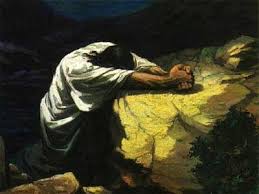When the Ziphites Had Gone to Sha’ul
Psalm 54: 1-7
For the leader. With stringed instruments. A maskil of David,
When the Ziphites came and told Sha’ul, “David is hiding with us.”
DIG: What strangers attack David (First Samuel 23:19-20)? Why do they betray the man who saved them from the Philistines? How does David feel? How do you account for the switch in tone in verses 6 and 7?
REFLECT: How would you feel or react if you had been in David’s shoes? Has your faith been attacked? Was the attack intellectual, theological, emotional or social? How did you respond? Have you seen evil recoil back on those who promote it? Explain.
To be betrayed by Doeg the Edomite (to see link click Be – When Doeg the Edomite Had Gone to Sha’ul) was hardly a surprise, but now David found himself rejected by men of his own tribe (First Samuel 23:19-24 and 26:1), in spite of his rescue of one of their border towns from the Philistines (see Bf – David Saves Keilah). In this dangerous and disillusioning situation David, once again, turned to Ha’Shem.

A. Prayer for Deliverance: Only YHVH could deliver David, so he prayed: God, deliver me by Your name; in Your power, vindicate me. David not only wanted to be saved from his enemies, he also wanted his righteousness to be established by the LORD’s judgment. What’s more, salvation and vindication come from the Name and the power of God. So when Abram camped between Bethel and Ai he built an altar and called on the name of ADONAI (Genesis 12:8). Notice that he didn’t merely call on ADONAI, but he called on His name. To know God’s name is to be able to contact Him.126 Consequently, David prayed: Elohim, hear my prayer; listen to the words from my mouth (Psalm 54:1-2 CJB).
B. Occasion of the Prayer: The need for intercession is now stated: For ruthless men (MSS and the Targum) are rising against me, violent men are seeking my life. If the ruthless men were the Ziphites, or possibly the inhabitants of Keilah who were of Canaanite origin, violent men would be Sha’ul and his followers. They do not worship God because they give no thought to YHVH (Psalm 54:3 CJB). This suggests that the insolent men were idolaters.
C. Declaration of Faith, Trust, and Belief: Surely God is helping me. In Psalm 30:1-3 God’s help is His mercy in healing and deliverance, and in Psalm 28:7 God helps us because He is David’s strength and shield. The psalm shifts from worry over the ruthless men to a confident trust in YHVH. Adonai (literally, my Lord, a word used in the Hebrew Bible used to refer to God) is the sustainer of my soul (Psalm 54:4 CJB). Here, ADONAI helps David arm for battle, and protects his life.127
B. Resolution of the Prayer: May He repay the evil to those who are lying in wait for me. In Your faithfulness, destroy them (Psalm 54:5 CJB)! The resolution of the prayer lies in the conviction that YHVH is just. He will not permit His children to suffer without vindication. David’s statement here is not vindictive, but expressive of trust in divine justice. Evil must be repaid. The faithlessness of his enemies stands in stark contrast to God’s faithfulness. ADONAI is faithful in His relationship to His people; therefore, David is trusting that Ha’Shem will protect him from his enemies.128
A. Fellowship and Deliverance: In full confidence that God had heard his prayer and would deliver him from all the trouble brought on by his enemies, David promised to praise God with a fellowship offering that accompanied and expressed praises for deliverance. It was offered voluntarily by the righteous of the TaNaKh (see my commentary on Exodus Fg – The Peace Offering).129 Then I will sacrifice a fellowship offering to you; I will praise Your name, ADONAI, because it is good, because he rescued me from all trouble, and my eyes look with triumph at my enemies (Psalm 54:6-7 CJB). The verbs here are all in the prophetic perfect. David was not fleeing from the reality of Sha’ul’s wish to have him killed. He must deal with his enemies, but only after he had dealt with YHVH. David expected that the LORD would hear his prayers and answer them by going into battle on his behalf. Consequently, the fugitive king meets Ha’Shem in the crisis, knowing that it is only God who can save and vindicate him.
When life’s problems come crashing down upon us, we can either flee from God or run to Him. The promise of the gospel is that He will meet us right where we are and be there as we go through it, no matter the outcome.130 With Yeshua by our side, we can go from near-despair to freedom.



Leave A Comment